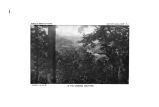| OCR Text |
Show 166 MYTHS OF THE CHEROKEE [ ETH. ANN. 19 benefits of the New Echota treaty, although not denied by the government, had been held to be conditional upon their removal to the West. 1 In the spring of 1848 the author, Lanman, visited the East Cherokee and has left an interesting account of their condition at the time, together with a description of their ballplays, dances, and customs generally, having been the guest of Colonel Thomas, of whom he speaks as the guide, counselor, and friend of the Indians, as well as their business agent and chief, so that the connection was like that existing between a father and his children. He puts the number of Indians at about 800 Cherokee and 100 Catawba on the " Qualla town" reservation- the name being in use thus early- with 200 more Indians residing in the more westerly portion of the state. Of their general condition he says: About three- fourths of the entire population can read in their own language, and, though the majority of them understand English, a very few can speak the language. They practice, to a considerable extent, the science of agriculture, and have acquired such a knowledge of the mechanic arte as answers them for all ordinary purposes, for they manufacture their own clothing, their own ploughs, and other farming utensils, their own axes, and even their own guns. Their women are no longer treated as slaves, but as equals; the men labor in the fields and their wives are devoted entirely to household employments. They keep the same domestic animals that are kept by their white neighbors, and cultivate all the common grains of the country. They are probably as temperate as any other class of people on the face of the earth, honest in their business intercourse, moral in their thoughts, words, and deeds, and distinguished for their faithfulness in performing the duties of religion. They are chiefly Methodists and Baptists, and have regularly ordained ministers, who preach to them on every Sabbath, and they have also abandoned many of their mere senseless superstitions. They have their own court and try their criminals by a regular jury. Their judges and lawyers are chosen from among themselves. They keep in order the public roads leading through their settlement. By a law of the state they have a right to vote, but seldom exercise that right, as they do not like the idea of being identified with any of the political parties. Excepting on festive days, they dress after the manner of the white man, but far more picturesquely. They live in small log houses of their own construction, and have everything they need or desire in the way of food. They are, in fact, the happiest community that I have yet met with in this southern country.* Among the other notables Lanman speaks thus of Sala'H, " Squirrel,'' a born mechanic of the band, who died only a few years since: lie is quite a young man and has a remarkably thoughtful face. He is the blacksmith of his nation, and with some assistance supplies the whole of Qualla town with all their axes and plows; but what is more, he has manufactured a number of very superior rifles and pistols, including stock, barrel; and lock, and he is also the builder of grist mills, which grind all the corn which his people eat. A specimen of his workmanship in the way of a rifle may be seen at the Patent Office in Washington, where it was deposited by Mr. Thomas; and I believe Salola is the first Indian who * Synopsis of the treaty, etc., in Royce, Cherokee Nation, Fifth Ann. Rep. Bureau of Ethnology, pp. 300- 313,1888; see also ante, p. 148. * Lanman, Letters from the Alleghany Mountains, pp. 94- 95, 1849. |































































































































































































































































































































































































































